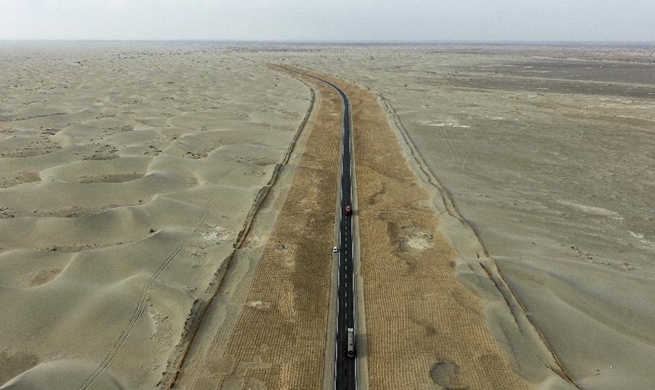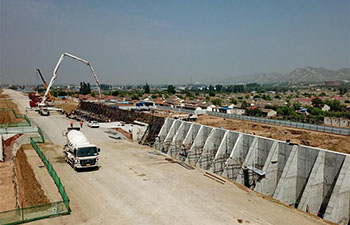AMMAN, June 14 (Xinhua) -- Jordan's economy is expected to improve following some 3 billion U.S. dollars aid pledged by the Gulf states, analysts said.
On Wednesday, Qatar announced that it would provide 10,000 jobs for Jordanians in the Gulf state, in addition to a package of investments in infrastructure projects in Jordan valued at 500 million dollars.
Earlier this week, Saudi Arabia, Kuwait and the UAE pledged 2.5 billion dollars to support Jordan's economy, which is suffering slow growth due to regional turmoil and presence of large numbers of Syrian refugees.
The aid includes a deposit at the Central Bank of Jordan, guarantees to be presented to the World Bank in favor of Jordan, budget support for five years, and funding of projects by development funds from the three countries.
"The Gulf aid comes at a very important time when unemployment in Jordan is at its highest level in decades and cost of living is on the rise," economist Hosam Ayesh told Xinhua.
According to the latest figures, unemployment rate reached 18.4 percent in the end of the first quarter of 2018.
"Jordan was in dire need of aid amidst rising public debt that currently stands at about 96 percent of the GDP," Ayesh said.
In Jordan, which hosts some 1.3 million Syrian refugees, economic growth stands at about 2 percent annually, way below the population growth of around 5 percent.
"The economic growth is not enough to create jobs as we have around 80,000 university graduates every year ... The Gulf aid will reduce pressure on Jordan and most of it should be allocated for investing in capital expenditure," said Ayesh.
Economist Wajdi Makhamreh also agreed, saying "we need to implement development projects that create jobs for young Jordanians ... we do not to borrow any more as the debt service is very high."
"The aid shows a strong message of support from the Gulf to the kingdom and to its role in regional stability and security," he said.
The aid by the Gulf countries comes following days of protests by Jordanians across the kingdom in rejection of the income tax draft bill and the government's economic policies, which forced the former Prime Minister Hani Mulki and his cabinet to resign.
Then, King Abdullah II of Jordan tasked Omar Razzaz, former education minister, with forming a new government, which succeeded in defusing tensions in the country.

















